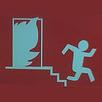|
Larry Mahnken and SG's | ||
|
| Replacement Level Yankees Weblog |

|
|
"Hey, it's free!" | ||
|
|
|
Larry Mahnken and SG's | ||
|
| Replacement Level Yankees Weblog |

|
|
"Hey, it's free!" | ||
|
|
|
Featuring: Larry Mahnken SG sjohnny TVerik Sean McNally Fabian McNally John Brattain This is an awesome FREE site, where you can win money and gift certificates with no skill involved! If you're bored, I HIGHLY recommend checking it out!
 
The New York Yankees Vintage World Series Films DVD Set, available from A&E. Yankees Tickets World Series Tickets MLB All Star Tickets NFL Tickets Purchase your Onlineseats.com is your #1 source for MLB tickets, NY Mets Tickets, Cubs Tickets, Yankees Tickets, Red Sox Tickets, Giants Tickets, Astros Tickets, Angels Tickets, Phillies Tickets.
Buy all your MLB Tickets,
Laser Keyboard Brazil Flowers TickCo.com for premium New York Yankees Tickets Boston Red Sox Tickets Chicago white Sox Tickets A's Tickets Angels Tickets New York Mets Tickets St Louis Cardinals Tickets Cubs Tickets Dodgers Tickets "I'm not a pessimist, I'm an optimist. Things are really worse than I say they are." - Steve South

January 2001 April 2003 May 2003 June 2003 July 2003 August 2003 September 2003 October 2003 November 2003 December 2003 January 2004 February 2004 March 2004 April 2004 May 2004 June 2004 July 2004 August 2004 September 2004 October 2004 November 2004 December 2004 January 2005 February 2005 March 2005 April 2005 May 2005 June 2005 July 2005 August 2005 September 2005 October 2005 November 2005 December 2005 January 2006 February 2006 March 2006 April 2006 May 2006 June 2006 July 2006 August 2006 September 2006 October 2006 November 2006 December 2006 January 2007 February 2007 March 2007 April 2007 May 2007 LINKS Yankees Sites and Columnists Nomaas.org General Baseball Sites & Columnists At Home Plate Rotoauthority.com The Book Blog - Playing the Percentages in Baseball(Tango, MGL, Dolphin) Yankees Blogs Almost Perfect Baby Bombers Baseball Mania Bronx Banter Bugs and Cranks Canyon of Heroes Dugout News Eephus Pitch Here Comes Number 27 High and Tight Lohud Yankees Blog No Sense Worrying Pinstripe Potentials River Ave. Blues Soft Hands The Stat Boy of the Empire Was Watching Yankees Chick Yankees Fans in Foreign Lands Yanks Blog Other Team Blogs Anaheim Angels All the Way Bucco Blog San Francisco Giants Blog Viva El Birdos Look what people have to say about Larry Mahnken's commentary! "Larry, can you be any more of a Yankee apologist?.... Just look past your Yankee myopia and try some objectivity." "Mr. Mahnken is enlightened."
"Wow, Larry. You've produced 25% of the comments on this thread and
said nothing meaningful. That's impressive, even for you."
"After reading all your postings and daily weblog...I believe you have truly become the Phil Pepe of this generation. Now this is not necessarily a good thing."
"you blog sucks, it reeds as it was written by the queer son of mike lupica and roids clemens. i could write a better column by letting a monkey fuk a typewriter. i dont need no 181 million dollar team to write a blog fukkk the spankeees"
"i think his followers have a different sexual preference than most men"
"Boring and predictable."
"Are you the biggest idiot ever?"
"I'm not qualified to write for online media, let alone mainstream
media."
This site is best viewed with a monitor.
|
Disclaimer: If you think this is the official website of the New York Yankees, you're an idiot. Go away. December 25, 2003
by Larry Mahnken
Hi everyone, Happy Xmas. What did you get? I got the flu.
December 18, 2003
What did Satchel say about looking back? by Larry Mahnken
Normally, the offseason belongs to the Yankees. They may not make the most moves, they may not sign the best players, but when the last free agent is signed, and the last trade is made, it seemed fairly clear that the Yankees were going to field the best team going into the season. Everyone started the offseason chasing the Yankees, everyone ended the offseason chasing the Yankees. Every year since 1998, the Yankees have either had the best record in baseball, or played in the World Series.
December 12, 2003
by Larry Mahnken
And Thursday offered more proof that I don't know what I'm talking about, as the Brown rumors apparently have become reality. And I'm happy to be wrong.
December 11, 2003
Worst Case Scenario by Larry Mahnken
Talking to Aaron Gleeman last night, he commented that a good name for my weblog would be "Worst Case Scenario". As my friends will probably attest to, that would probably be a good name for my autobiography, too. I am indeed a pessimist in all things.
December 10, 2003
A Fool For A Client by Larry Mahnken
Brian at Redbird Nation has this anonymous quote from an MLB executive:
Stupid Free Agent Tricks by Larry Mahnken
"A man who represents himself has a fool for a client."
December 8, 2003
Yankee Arbitration Offers by Larry Mahnken
Thanks to NTNGod at Baseball Primer for making these updates, the Yankees have offered arbitration to:
December 5, 2003
by Larry Mahnken
- J.R.R. Tolkien
December 3, 2003
by Larry Mahnken
I think it's safe to say that the reported Gary Sheffield signing came as a surprise to nobody. As the season wound down with the Yankees running Karim and the Gang out in right, we were all pretty sure that the Yankees were going to chase Vlad Guerrero or Gary Sheffield, and as soon as it became apparent that the Yankees weren't going to let Vlad use them to raise the price for the teams he actually wanted to play for, the Sheffield signing was a forgone conclusion. There's not very much the Yankees have done this offseason that's surprised anybody, it appears that they're going to try hard to resign Pettitte, maybe sign Bartolo Colon, as well as bringing back Gabe White and Felix Heredia. The signing of Tom Gordon is a good one, in my opinion, if a little pricey. He'll do for the Yankees what they had hoped Jeff Nelson and Armando Benitez would do, get crucial outs in the seventh and eighth along with Steve Karsay. Paul Quantrill was also pricey, but still good. The Yankees are putting together the most expensive bullpen ever, but at least they'll have pitchers that Torre will trust and use, and will almost certainly get good quality out of them.
November 29, 2003
Wakeup Call by Larry Mahnken
The Yankees won 101 games last season, they won the American League Pennant, and they took the World Series to six games before losing. The ending was disappointing, but the overall outcome is very good, and if next season ends up the same way, that's a very good result, too.
November 23, 2003
Online by Larry Mahnken
Hey, that was fast. I'm back.
November 21, 2003
Offline by Larry Mahnken
I've been without internet for a while, so I haven't been able to update the blog. I still don't have internet, I'm at the library writing this. I'll be back when I'm back online, I don't know when that will be. It's very frustrating.
November 6, 2003
by Larry Mahnken
Seems there was some controversy over my most recent entry. Mostly because it wasn't very well written. Well, sorry about that, there was a lot of premise behind some of the things I was trying to write, and I didn't do a very good job of showing the premise.
November 4, 2003
Second base--and second thoughts by Larry Mahnken
Sorry for no update for the past few days. I took the weekend off, and then some stuff came up yesterday. There wasn't much news over the weekend anyway, the Yankees declined their options of Gabe White and Antonio Osuna, which wasn't at all surprising. Osuna was ineffective in the second half, and didn't make the postseason roster, and even if the Yankees want White back (I'm not sure if they do or not), $3.5 million is a bit pricey for a middle reliever. They could probably resign him for less than that.
October 31, 2003
Looking forward: First Base by Larry Mahnken
After the Yankees lost the fourth game of the World Series, Joe Torre juggled the lineup, benching Alfonso Soriano and playing Nick Johnson instead of Jason Giambi. When David Wells had to leave after one inning, the bullpen gave up six runs, enough to hold of New York for a 6-4 win. Soriano and Giambi came in to pinch hit in the later innings, though Giambi was inexplicably sent to the plate with nobody on in the ninth, instead of the bases loaded in the seventh. After the series, some of the blame for the loss was directed towards Giambi, who some claimed "begged" out of the lineup--although other reports are that Torre pulled him after seeing him limping. Jon Heyman and Mike Lupica have played this up as a character flaw, Lupica wrote that an another Yankee said that Paul O'Neill would have hidden the injury from Torre. Therefore, Jason Giambi is not Paul O'Neill, and thus is not a winner. Gotta dump him.
October 30, 2003
Manny Ramirez a Yankee? by Larry Mahnken
Art Martone, the brilliant sports editor of the Providence Journal
Looking forward by Larry Mahnken
So, I took a few days off. I needed a few days off.
October 26, 2003
Not with a bang, but a whimper: Florida 2 , New York 0 by Larry Mahnken
Since becoming a hardcore Yankees fan in 1991, I have seen my favorite team win four World Championships, six American League Pennants, make the playoffs nine consecutive years, and be robbed of a playoff appearance and a possible World Championship by the strike. I came in just as the Yankees were climbing out of the cellar (although I had always been a fan, just not devoted), and I witnessed their entire rise to glory. I have, most definitely, been spoiled.
October 25, 2003
Last Dance by Larry Mahnken
I look at tonight's Game Six with anticipation and dread. I don't feel confident that they'll win this game, or certain that they'll lose it, either. I know they can win, I know they should win, but they should also have won all five of these games, and they lost three of them. So much for should.
| ||||||||||